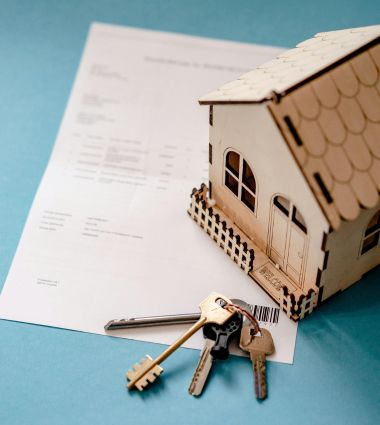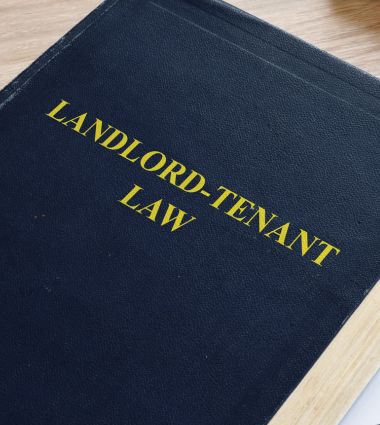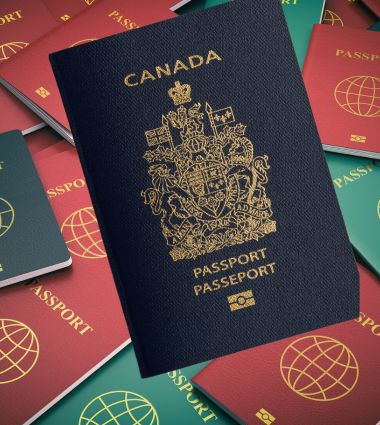Understanding a Sublet Agreement in Ontario
Subletting your place while you're away might seem like a quick way to cover rent, but without a proper sublet agreement, it can turn into a legal mess fast. At Khan Law LLP, we’ve seen both tenants and landlords run into trouble simply because the paperwork wasn’t clear or wasn’t done at all.
Whether you're a tenant thinking of subletting your unit or a landlord unsure of your rights, this guide covers what you need to know under Ontario law — and when it’s smart to get a real estate lawyer involved.
What Is a Sublet Agreement in Ontario?
In Ontario, a sublet agreement is a legal arrangement where a tenant temporarily rents out their unit or a part of it to someone else, known as the subtenant. The original tenant still holds the lease and is responsible for rent payments, damages, and following the terms of the lease. That’s a key point: even if you’re not living there, you’re still legally tied to the unit.
Subletting vs. Assigning: What’s the Difference?
A lot of confusion happens around the difference between subletting and assigning a lease. Here’s how a real estate lawyer usually explains it:
- Subletting: You're stepping away for a bit, maybe travelling or working in another city, but plan to return. You remain on the lease, and the subtenant stays for a fixed period.
- Assigning: You’re leaving for good. In this case, your lease gets transferred to a new tenant, and your legal ties to the unit end.
Both actions require written consent from the landlord under Ontario’s Residential Tenancies Act (RTA). But from a legal standpoint, they come with very different obligations and risks. Many tenants and landlords turn to a real estate lawyer when dealing with subletting or assigning, especially when the agreement involves money, shared space, or unclear terms.
A well-drafted sublet agreement can help avoid a lot of drama down the road.
What Should Be Included in a Sublet Agreement?
Key details every Ontario sublet agreement needs:
A handshake isn’t enough; a proper sublet agreement needs to spell everything out in writing. Whether you’re the tenant or the subtenant, clear terms can save everyone from future headaches.
Here’s what should be covered in a standard Ontario sublet agreement:
- Names of all parties: Include the original tenant, the subtenant, and the landlord (if involved).
- Rental unit address: Make sure the location is listed.
- Start and end dates: Outline exactly when the subtenant will move in and out.
- Monthly rent: Include how much the subtenant will pay, when it’s due, and how it should be paid (e-transfer, cheque, etc.).
- Utilities and other costs: Who’s paying for hydro, internet, or parking? Be specific.
- Security deposit (if any): While Ontario doesn’t allow damage deposits, a last month’s rent deposit is common.
- Rules and responsibilities: Smoking, pets, noise — whatever the landlord’s rules are, the subtenant has to follow them too.
- Signatures: Both parties (and ideally the landlord) should sign to make the agreement legally binding.
A sublet agreement doesn’t replace your lease; it’s an add-on that protects you. If anything in the sublet contradicts the lease, the lease terms win.
If you're unsure how to word things or want extra protection, getting the agreement reviewed by a real estate lawyer is a smart move. We’ve seen sublet deals fall apart because of vague or missing terms, especially when there's money involved or the landlord isn't fully looped in.
Do You Need Landlord Approval to Sublet in Ontario?
Yes — And Here’s Why That Matters
In Ontario, you can’t sublet without your landlord’s written consent. That’s not just a courtesy, it’s part of the law under the Residential Tenancies Act (RTA). Trying to sublet without permission can lead to eviction, legal disputes, or even small claims court.
According to the RTA:
- You must request to sublet in writing.
- The landlord can’t “unreasonably” refuse, but they are allowed to screen and reject specific subtenants.
- They aren’t required to approve your first choice, but they also can’t block your request without a solid reason.
Keeping everything documented is key. If permission is only given verbally and later denied, you could be left with no legal backup. Always keep a copy of your sublet request, the landlord’s response, and the final agreement.
This is especially important if you're planning a shorter rental period or sharing space, where legal boundaries can get blurry. Many of the same risks show up in short-term rental arrangements in Toronto, where both landlords and tenants need to be cautious about liability and lease violations.
If you’re running into roadblocks or unclear terms, speaking with a real estate lawyer can help clarify what you can - and can’t - do when it comes to subletting in Ontario.
How to Protect Yourself in a Sublet Agreement
Subletting sounds simple — until something goes wrong. Maybe the subtenant damages the unit, stops paying rent, or breaks building rules. Or maybe the landlord tries to back out of a deal mid-sublet. These things happen more often than people expect, which is why both tenants and landlords need to protect themselves before anything is signed.
If you’re the tenant subletting the unit:
- Always get your landlord’s written approval.
- Screen your subtenant. Ask for ID, references, and a short rental history.
- Use a detailed sublet agreement (not just a text message or email).
- Don’t collect extra rent above what you pay — this can violate the lease or the RTA.
- Inspect the unit before and after the sublet, and keep photos for reference.
If you’re the landlord:
- Review the sublet terms carefully before signing off.
- Ask to meet the subtenant, or request their contact info and rental history.
- Clarify responsibilities: Will the original tenant handle repairs, or will the subtenant?
- Keep communication in writing, especially if problems arise during the sublet.
- If you suspect a lease is being violated, act fast — delays can make things harder to resolve.
Many disputes around sublets come down to poor communication, missing paperwork, or unclear expectations. We’ve seen similar issues arise in cases involving unauthorized occupants or unclear verbal agreements, where rental disputes could have been avoided with a little legal guidance up front.
Whether you’re renting out for a few months or dealing with a complex sublet situation, it’s often worth running the agreement by a real estate lawyer. A quick review now can save a lot of stress later.
Common Mistakes to Avoid in Sublet Agreements
Whether you're subletting your condo in downtown Toronto or renting out part of your basement, it’s easy to overlook legal details that later turn into full-blown problems. These are some of the most common subletting mistakes:
1. No written agreement:
Verbal deals or text-message confirmations won’t hold up if things go sideways. A written sublet agreement should clearly state the duration, rent, responsibilities, and conditions of the arrangement.
2. Skipping landlord approval:
Tenants sometimes assume that if the rent is paid, the landlord won’t care. But in Ontario, you must get written permission to sublet — otherwise, the landlord has grounds to terminate the lease.
3. Subletting for profit:
Charging a subtenant more than what you pay may seem like a good way to cover costs, but it’s often against the lease and can backfire if discovered.
4. Not vetting the subtenant:
Whether it’s a friend of a friend or someone from a rental site, failing to screen your subtenant is risky. Credit checks, references, and even a quick social media check can prevent a lot of stress later.
5. Ignoring the original lease terms:
A sublet doesn’t cancel the original lease, you’re still legally responsible. If your subtenant causes damage or fails to pay, it falls back on you.
6. Falling for rental scams:
In some cases, individuals post sublets they don’t have the right to rent, or tenants unknowingly host unauthorized guests long-term. These situations can spiral into legal action and even real estate fraud cases, especially when money changes hands without a traceable agreement.
Legal slip-ups in subletting don’t just lead to misunderstandings — they can cost you real money, damage your record, or affect your ability to rent in the future. If you’re not sure about a detail in your agreement, getting a quick review from a real estate lawyer can give you peace of mind and a solid legal backup.
When to Involve a Real Estate Lawyer
Most sublets go smoothly until they don’t. You might think everything is fine until the landlord objects mid-way, or the subtenant overstays, refuses to leave, or causes damage. That’s when things get complicated, fast.
Real estate legal support can help clarify rights and risks on both sides. Whether you’re a tenant worried about being held responsible for someone else’s actions or a landlord dealing with unauthorized subletting, legal advice can keep things from spiraling into disputes or eviction proceedings.
Real estate lawyers have worked with clients who didn’t realize they needed legal help until the situation was already stressful and expensive. That’s why we often recommend reaching out before signing or approving a sublet, especially if:
- There’s no clear agreement in place
- You’re unsure whether the lease allows subletting
- The landlord is withholding or delaying approval
- You’re concerned about liability for damages or unpaid rent
- You suspect the sublet might violate building or condo rules
If you’re in the Toronto area and unsure how to protect yourself legally, speaking with a real estate lawyer in Ontario can help you get ahead of potential problems before they turn into formal legal action.
You don’t always need a lengthy legal battle; sometimes, a single consultation is all it takes to fix a contract, set clear terms, or make sure your rights are protected on paper.
Subletting sounds easy, but the details can get messy if you're not paying attention. It’s not just about finding someone to take over the rent — it’s about knowing what your lease says, getting things in writing, and making sure everyone’s on the same page.
Whether you’re the tenant or the landlord, it helps to slow down and sort through the basics before handing over keys or signing anything. That little bit of effort upfront? It saves a lot of problems later on.
Real Estate
Family Law
Wills & Estates
Immigration
Join Our Mailing List.
Sign up with your email to receive our newsletter and stay informed about the latest legal developments and special offers.






















































































